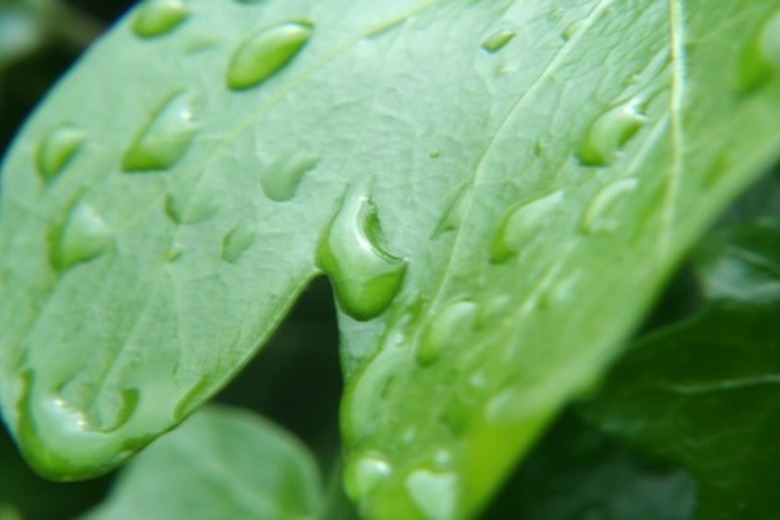Herbicides To Kill Poison Ivy
There are several kinds of commercial herbicides used to effectively eliminate poison ivy. Most of these products also get rid of unwanted grass and weeds, but use care during application, as some products can threaten nearby desirable plants. Each herbicide contains a different active ingredient that works to kill the poison ivy. While some products eliminate only the leaves of the plant, others work to destroy the roots as well.
Roundup
Roundup is a powerful herbicide used to kill poison ivy and poison oak. It also effectively eliminates weeds and unwanted grass. This product's active ingredient is gylphosate, which is the most commonly used herbicide in the United States. Roundup is put directly onto the plant's leaves and, once applied, it is absorbed and moves throughout the entire plant, killing the roots as well as the foliage. Nearby plants will be affected if they come in contact with this herbicide, so avoid spraying any desirable plants during the application process. Roundup does not affect the soil and will not transfer via soil to the roots of nearby plants. Rain within six hours of application will diminish Roundup's effectiveness, according to Michigan State University. Once applied, the treated plants should not be handled or moved for a few days. Roundup is toxic to both humans and animals, and ingesting and direct skin contact with this product should be avoided.
- There are several kinds of commercial herbicides used to effectively eliminate poison ivy.
- Most of these products also get rid of unwanted grass and weeds, but use care during application, as some products can threaten nearby desirable plants.
Weed-B-Gon
The active ingredient in Weed-B-Gon is 2, 4-D, which kills poison ivy but does not kill grass. The safety of nearby grass makes Weed-B-Gon a popular choice for many homeowners. Weed-B-Gon does not kill the root of the plant, so more than one application may be required in order to effectively eliminate the poison ivy. This herbicide should be applied when there is no threat of rain, as wetting the plant 6 to 12 hours after treatment will reduce the effectiveness, according to The University of Oklahoma Police Department. Some plants are extremely susceptible to the effects of Weed-B-Gon. When using a sprayer, it is best to apply this product when there is no wind, as the chemicals can drift in the air and land on nearby plants. The sprayer should be thoroughly rinsed with a mixture of water and ammonia before using for other plants. Weed-B-Gon cause eye and skin irritation and should not be ingested by humans or animals.
- The active ingredient in Weed-B-Gon is 2, 4-D, which kills poison ivy but does not kill grass.
- Weed-B-Gon does not kill the root of the plant, so more than one application may be required in order to effectively eliminate the poison ivy.
Weedazol
Weedazol, whose active ingredient is amitrole, is available in either liquid form or a wettable powder. This product kills poison ivy as well as weeds. Weedazol is highly effective and should be applied during a time when the plant is growing rapidly. In order to be most effective, all of the leaves of the plant must be thoroughly coated. Once absorbed, Weedazol moves throughout the plant to kill the roots as well as the leaves. This product remains in the soil for several weeks, and it should not be used in close proximity to other wanted plants, according to the Michigan State University website. New crops should not be planted for at least six weeks after Weedazol has been applied. If placed in contact with this herbicide, nearby plants will be affected, and depending on the amount, can wither or die. While Weedazol can cause minor skin and eye irritant, its level of toxicity for humans is low, according to Extoxnet.
- Weedazol, whose active ingredient is amitrole, is available in either liquid form or a wettable powder.
- This product remains in the soil for several weeks, and it should not be used in close proximity to other wanted plants, according to the Michigan State University website.
